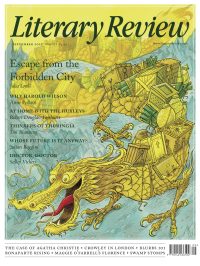Lucy Popescu
Writers in Myanmar
Since Myanmar’s military seized power on 1 February 2021, journalists have been routinely targeted as part of a crackdown on freedom of expression in the country. At the end of July, writer Kyaw Min Yu (also known as Ko Jimmy) was among four pro-democracy activists executed, following a show trial at which they were denied the opportunity to establish their innocence according to international fair-trial norms.
The decision to carry out the executions – the first to take place in the country in over thirty years – despite international appeals for the activists’ release is a reminder of the extent of the violence that the junta is prepared to use against the people of Myanmar.
Ma Thida, chair of PEN International’s Writers in Prison Committee, who was herself imprisoned by the previous military junta for six years in 1993, condemned the use of capital punishment in the strongest terms:
By denying the right to appeal and other basic standards necessary for a fair trial, these judicial executions are a cynical attempt to cloak the abhorrent use of lethal force behind a veil of legality. By carrying out these executions, the military junta has once again displayed its murderous intent towards its own citizens, and the open contempt it holds towards its international human rights obligations.
The resumption of judicial executions by the regime represents a shocking escalation in the use of violence against those imprisoned for speaking freely. Among those currently facing potential death sentences is the writer and pro-democracy activist Wai Moe Naing, who rose to prominence as a leader of the anti-coup protest movement and was among those who popularised the idea of banging pots and pans as a non-violent act of resistance. On 15 April 2021, junta forces reportedly used an unmarked vehicle to ram Wai Moe Naing, who was driving a moped while participating in a protest rally in the Monywa region. When he tried to escape on foot, a group of armed men got out of the vehicle and attacked him and a female protester before detaining them both.
After an image emerged of Wai Moe Naing, taken after his detention, that indicated signs of torture, the Swedish embassy in Yangon urged the military to provide adequate healthcare to all detainees. The US embassy in Yangon has also condemned the attack on him.
On 21 April, Wai Moe Naing appeared in court, where he was charged under the new section 505A of Myanmar’s penal code. This has been used against thousands of anti-coup protesters who have openly criticised the military. In a disturbing development, the junta also accused him of murder. Wai Moe Naing could face the death penalty if convicted.
The well-known poet Maung Yu Py was arrested on 9 March 2021 while attending an anti-coup protest in his home town of Myeik, southern Myanmar. Charged with unlawful assembly and spreading false news under the amended penal code, he was sentenced to two years’ imprisonment in June 2021. The writer and philanthropist Than Myint Aung was taken from her home on the day of the coup. On 27 December she was sentenced to three years’ imprisonment under the newly amended penal code, reportedly in connection with speeches she gave at literary events in 2019.
Several international journalists have also been arrested since the coup. They include the Japanese journalist Toru Kubota, who has been charged with encouraging dissent against the regime. If convicted, he faces up to two years’ imprisonment. Kubota has also been charged under Myanmar’s 1947 Immigration Law and faces imprisonment of up to five years. According to media reports, Kubota was detained shortly after he had filmed an anti-government rally in Yangon. The Japanese embassy in Yangon is pressing for his release. While other international detainees, including the Japanese filmmaker and journalist Yuki Kitazumi and the American journalist Danny Fenster, have been released, around seventy journalists from Myanmar remain in detention. In its most recent annual prison census report, the Committee to Protect Journalists ranked Myanmar as the world’s second-worst jailer of journalists.
Readers may like to send appeals expressing horror at the execution of Kyaw Min Yu and three other pro-democracy activists, in violation of international fair-trial norms; calling for the immediate release of Wai Moe Naing, Maung Yu Py, Than Myint Aung and Toru Kubota and seeking assurances that the charges against them will be dropped; condemning the military’s brutal suppression of unarmed protesters; and calling for the immediate and unconditional release of all those detained for peaceful free expression.
Appeals to be addressed to:
The Myanmar Embassy
19A Charles Street
London W1J 5DX
Fax: +44 20 7409 7043
Email: Mingalarpar@londonmyanmarembassy.com

Sign Up to our newsletter
Receive free articles, highlights from the archive, news, details of prizes, and much more.@Lit_Review
Follow Literary Review on Twitter
Twitter Feed
It wasn’t until 1825 that Pepys’s diary became available for the first time. How it was eventually decrypted and published is a story of subterfuge and duplicity.
Kate Loveman tells the tale.
Kate Loveman - Publishing Pepys
Kate Loveman: Publishing Pepys
literaryreview.co.uk
Arthur Christopher Benson was a pillar of the Edwardian establishment. He was supremely well connected. As his newly published diaries reveal, he was also riotously indiscreet.
Piers Brendon compares Benson’s journals to others from the 20th century.
Piers Brendon - Land of Dopes & Tories
Piers Brendon: Land of Dopes & Tories - The Benson Diaries: Selections from the Diary of Arthur Christopher Benson by Eamon Duffy & Ronald Hyam (edd)
literaryreview.co.uk
Of the siblings Gwen and Augustus John, it is Augustus who has commanded most attention from collectors and connoisseurs.
Was he really the finer artist, asks Tanya Harrod, or is it time Gwen emerged from her brother’s shadow?
Tanya Harrod - Cut from the Same Canvas
Tanya Harrod: Cut from the Same Canvas - Artists, Siblings, Visionaries: The Lives and Loves of Gwen and Augustus John by Judith Mackrell
literaryreview.co.uk